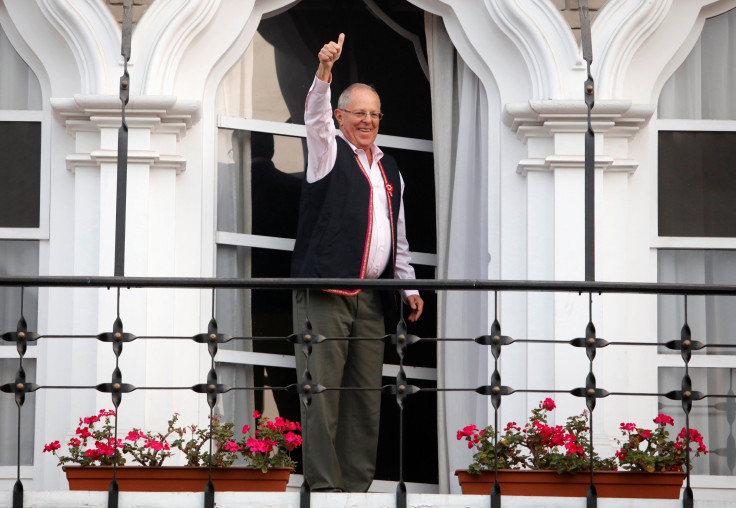Peru Election: Fujimori Catching Up To Kuczynski In Tight Presidential Race

As votes continue to trickle in from rural areas and embassies abroad, Pedro Pablo Kuczynski’s lead over Keiko Fujimori in the Peruvian presidential election is shrinking. The former World Bank economist, popularly known as PPK, currently has 50. 2 percent of the votes and Fujimori holds the remaining 49.8 percent.
Two quick counts earlier showed Kuczynski comfortably ahead of Fujimori, the daughter of imprisoned former President Alberto Fujimori. Reports say the margin has now shrunk to fewer than 60,000 votes, with almost 885,000 ballots still to be counted. These are votes coming in from Peruvians settled abroad, mostly in the U.S.
Even if Kuczynski maintains his lead, he would have a tough time in the parliament, where Fujimori’s Popular Force has a solid majority, having won 73 of the 130 seats. Kuczynski’s Peruvians For Change party holds a mere 18 seats.
The Peruvians For Change campaign announced it would be ready to work with all political groups but the Popular Force may not be quite so welcoming.
"They [Peruvians For Change] called us drug traffickers, thieves," congresswoman Lourdes Alcorta said, "It's going to be difficult for us to hug them." In the final stretch of his campaign, Kuczynski had accused Fujimori of ushering in a “narco state.”
Before Sunday’s runoff vote, Fujimori consistently beat Kuczynski in the polls. But the 77-year-old former economist picked up her father’s corruption case and human rights violations as election planks, and spoke against the former congresswoman.
A string of controversies that cropped up towards the end of Fujimori’s campaign also helped Kuczynski’s chances, as did an endorsement from leftist congresswoman Veronika Mendoza.
© Copyright IBTimes 2025. All rights reserved.






















